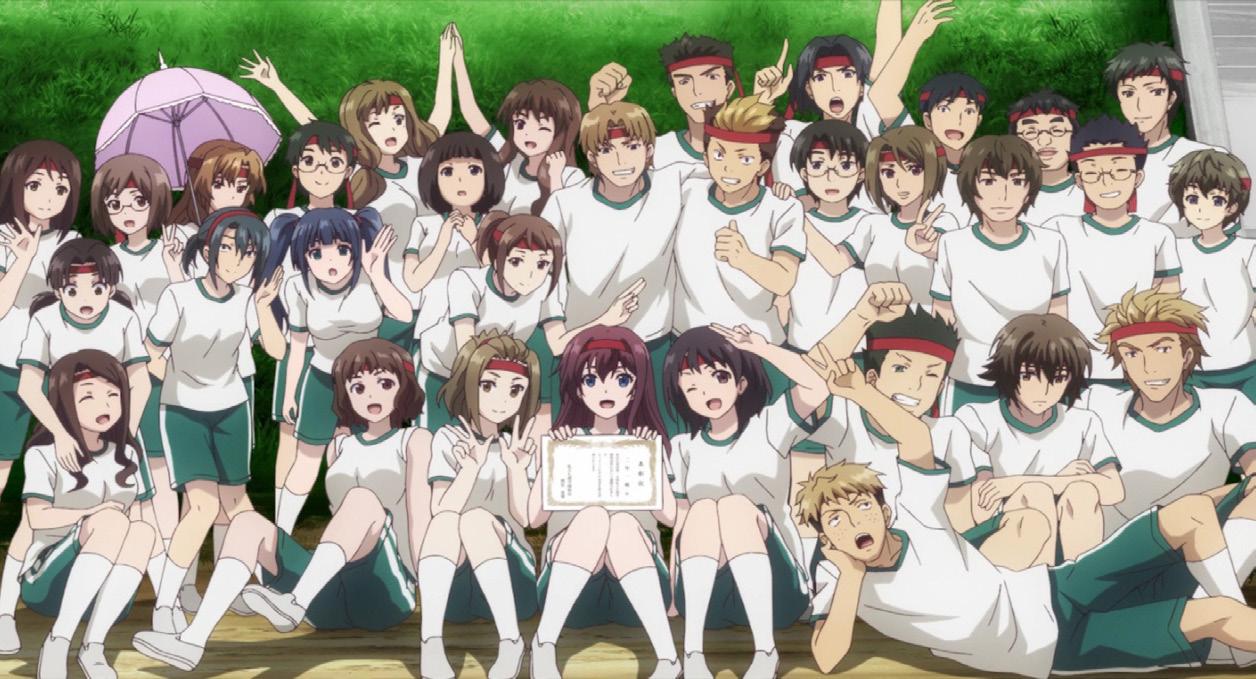
3 minute read
WHAT MAKES A BAD MYSTERY?
ANDREW WING - Writer, 4th Year, Media Studies
"Waifubot has consumed my life (Kong Wenge where are you?)"
Advertisement
Originally published on Mar. 7, 2019
Thanks to the anime tastes of my freshman year roommate, I’ve seen many mystery anime over the years - both the good, and the bad. Mystery is one of my favorite genres, so it’s always tragic when one turns out bad. Some of the less-than-stellar ones I’ve seen include Mayoiga, Ranpo Kitan, and HaruChika, just to name a few. What makes a bad mystery?
The first characteristic of a bad mystery show is an episodic show structure. Don’t get me wrong, there are some solid episodic mystery shows out there, such as Death Parade, however, most of the time they’re a mystery-of-the-week gone wrong. One of the best things about a mystery is its complexity and mind-boggling nature. It’s nice to see the investigation, contemplation, and suspense that leads to the mystery being solved. When mysteries are compressed to just one episode, the mystery-solving process becomes so abridged that it’s just not as enjoyable. Not enough information is presented for the viewer to solve the mystery themselves. Each case ends up feeling unimportant due to how quickly it’s solved. Another problem it presents is that it results in a collection of short stories, rather than a longer, ongoing conflict. Many of these mystery-of-theweek shows don’t have a solid plot that connects the individual mysteries together. Examples of episodic mysteries are HaruChika, Holmes of Kyoto, and Beautiful Bones. HaruChika has this problem: Haruta and Chika solve random mysteries loosely related to their school’s music club. This ends up making these shows very unfulfilling to watch, because previous arcs become irrelevant once the characters move on.

I thought this was going to be about band
Somewhat related are overpowered main characters. Frequently, the mysteries are short because the main character is ridiculously OP. Examples of mysteries with OP main characters are Beautiful Bones and Holmes of Kyoto. Beautiful Bones was actually quite solid, but serves as a good example of this trope. Sakurako knows everything and is able to figure out any mystery with little to no clues to work with. Holmes has ridiculous deduction skills and is like the best appraiser in the universe. There is very little suspense since you always know that the main character is going to save the day. It makes the show too predictable because you know going in that the MC will figure it out. It significantly lowers the story’s sense of realism as the MC just knows too much.
The last aspect of a poor mystery is a huge cast of characters. Some mysteries can pull this off e.g. Danganronpa. Nevertheless, most mysteries with an ensemble cast just don’t have enough time to develop all of their characters. For example, Mayoiga had 30 characters riding the same bus together, with most of them being nobodies who barely get any screen time. King’s Game had a class of 32 classmates participate in a killing game together. Most of the characters were shallow caricatures who played to their stereotypes and ended up being uninteresting themselves. Not only are there many pointless, irrelevant characters, but also the MCs end up being underdeveloped because there are so many characters.

Squad
Looking back, mystery is one of my favorite genres. The genre boasts some all-star shows like Death Note, Zankyou no Terror, and Erased. It’s tragic that many promising shows of the genre end up bad, often times to the same few tropes.



